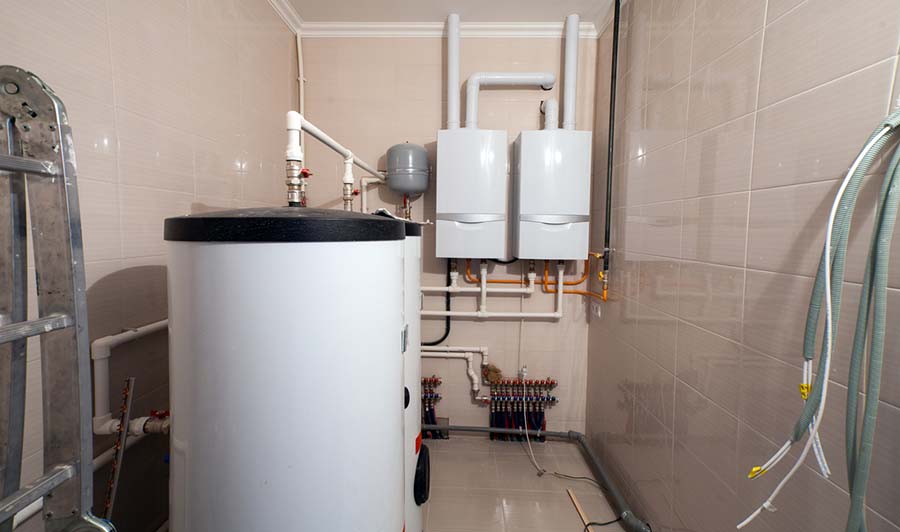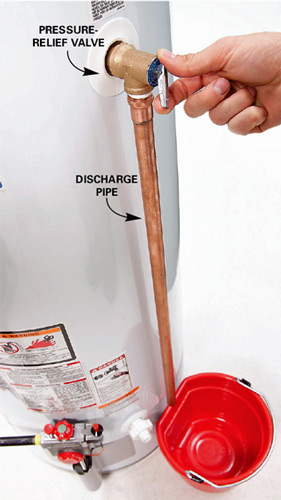Responding to the Everyday Heater Urgent Problems
Responding to the Everyday Heater Urgent Problems
Blog Article
The publisher is making a number of good observations on Warning Signs You Need Water Heater Repairs overall in the content down the page.

A hot water heater is just one of the most crucial basic appliances that can be found in a home. With hot water heater, you do not require to go through the stress and anxiety of heating water by hand whenever there is a demand to wash, wash, or the meals. Nevertheless, there is always a possibility that your water heater would break down similar to most mechanical devices.
It is important to note any little malfunction as well as tackle it swiftly before things get out of hand. Many times, your hot water heater starts to malfunction when there is a build-up of sediments as a result of continual use. As a safety measure, routine flushing of your hot water heater is recommended to prevent debris build-up and also protect against functional failure.
Typical hot water heater emergency situations and exactly how to manage them
Leaking water heater container.
A leaky container could be an indication of deterioration. It could cause damage to the flooring, wall surface and also electric tools around it. You can even go to risk of having your home swamped. In this scenario, you must turn off your hot water heater, allow it to cool down, as well as thoroughly look for the source of the issue. Sometimes, all you need to do is to tighten a couple of screws or pipe connections in cases of minor leaks. If this doesn't function as well as the leak persists, you might need to use the solutions of a service technician for a suitable replacement.
Varying water temperature level.
Your water heater might begin creating water of different temperatures typically ice hot or chilly warm. There may be a demand to replace either the heating or the thermostat system of your water heating system.
Inadequate hot water
It may be that the water heater can not sustain the warm water need for your house. You could upgrade your water heating unit to one with a bigger capacity.
Tarnished or odiferous water
When this takes place, you need to know if the problem is from the storage tank or the water resource. If there is no amusing scent when you run cool water, after that you are particular that it is your water heating unit that is damaged. The stinky water can be created by corrosion or the build-up of microorganisms or debris in the water heating unit storage tank.
Conclusion
Some homeowners overlook little warning and also minor faults in their water heater device. This just causes further damages and also a feasible complete malfunction of your device. You must manage your hot water heater mistakes as soon as they come up to prevent more costs and also unneeded emergency troubles.
With water heaters, you don't need to go through the stress of heating water by hand every time there is a demand to take a bath, do the washing, or the meals. Your water heating unit might begin producing water of different temperatures normally ice scalding or cold warm. It might be that the water heating system can not support the hot water demand for your apartment. If there is no funny odor when you run chilly water, then you are certain that it is your water heater that is defective. The stinky water can be caused by rust or the build-up of bacteria or debris in the water heater container.
Water Heater Burst: Why This Happens And What To Do Next
Water Heater Explosion Warning Signs
Since storage water heaters are made of metal and store large volumes of heated water, they carry an increased risk of leaking or even exploding as they begin to rust at the fittings and seams over time. If the thermostat controlling the water temperature within the tank is faulty, or if mineral buildup inside the water heater prevents the thermostat from sensing the water’s temperature correctly, the water could become overheated. This will expand its volume within the tank, causing it to press at the tank’s fittings and seams. If these fittings and seams are rusted or corroded, the pressure could result in a leak or even an explosion.
Here are some risk factors and warning signs of an increased risk of water heater leak or explosion:
Your water heater is more than 10 years old. Your water heater makes clanking, banging or rumbling noises as it heats up, indicating that sediment has built up and hardened inside the tank. There is visible rust on the outside of the water heater, especially located at the pipe fittings or the seams that run down the tank. There is rusty water coming from your water heater, indicating that there may be rust building up inside. Your water heater is leaking, which could indicate either a crack somewhere in the tank or a malfunctioning temperature-and-pressure (T&P) relief valve. What To Do When Water Heater Leaks
If you find water dripping or seeping out of your water heater, or pooling around it, it means your water heater is leaking. If you find a leak, it may be best to call a plumbing professional to diagnose the problem and determine how best to handle it. If you choose to tackle it on your own, there are a few things you can do.
TURN OFF THE POWER
Next, shut off the power to the hot water tank at your home’s electrical breaker box. If you don’t shut off the power, the heating elements within the tank could continue to stay hot, which could pose a fire risk.
If you have a gas-powered water heater, you’ll also need to shut off the gas line leading into the tank.
FIND THE LEAK
Now it’s time to determine where the leak is coming from. Likely locations are the T&P valve, the drain valve or one of the pipes or fittings that feed into the top of the tank. If you see any rust or corrosion on the outside of your water heater’s tank, pipes or fittings, these could also be the source of the leak.
REPAIR THE LEAK
Once you determine the source of your water heater leak, you’ll have a better idea of what steps you need to take to fix the problem. It may be a simple fix—such as using a wrench to tighten fittings or replacing the T&P valve—but it may be something more complicated. You may even need to drain the tank, remove the water heater and install a new one.
https://www.abchomeandcommercial.com/blog/water-heater-burst/

I am very involved in Warning Signs You Need Water Heater Repairs and I'm hoping you appreciated the new article. Those who appreciated our blog post if you please remember to share it. We love reading our article about The Importance of Water Heater Maintenance.
View More Report this page